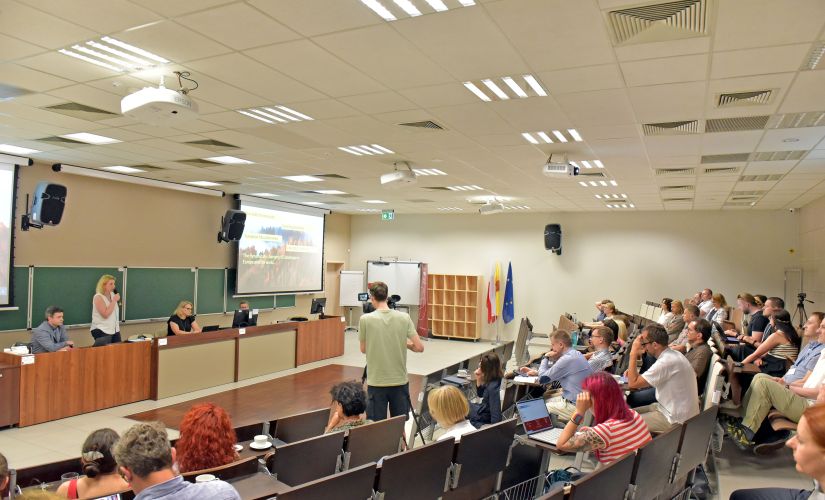Tutoring appears to be one of the methods to help the student manage competence diversity. It also marks a shift from the education relying on teaching to education relying on learning, where the role of the mentor is to provide guidance to the student.
Lodz University of Technology, in carrying out a long-running project Masters of Didactics, has developed and implemented three models of tutoring. They were summarized during the Teaching Café - an Hour of Inspiration meeting on the theme 'Tutoring, or how to provide all-round guidance to students of Lodz University of Technology'.
Academic teachers - masters of didactics - gathered at the Arena Magica room to meet with the vice-rector for education, dr hab inż. Andrzej Romanowski, and the 'godmothers' of tutoring at TUL: dr inż. Dorota Piotrowska, TUL professor, Director of the International Cooperation Center, mgr Adrianna Kozłowska, Director of the Center for Teaching and Learning, and mgr Marzena Stawicka, TUL Language Center, university coordinator for tutoring.
In the 2018-2020 pilot phase of the Masters of Didactics project, 75 tutors were trained on how to provide tutoring. They tutored 700 tutees. The next three years were spent on rolling out the tutoring model and providing advanced training to 16 tutors. Extended tutoring was a special type of tutoring developed for high-ability students. It involved providing the student with support and developmental stimuli over the course of three terms. 50 tutees took part in the first implementational edition.
During the meeting, the current model in operation at TUL was discussed. It offers a selection of three paths: pastoral tutoring, tutoring for high-ability students, and peer tutoring. The latter requires some modification, hence the discussion on the new concept for its implementation.
The E2TOP project was given special praise when tutoring for high-ability students was discussed, as an excellent form of personalized education based on the master-apprentice relation. Much attention was also paid to pastoral tutoring as a method of fostering student well-being. It was piloted at the IFE in the 2022/23 academic year, and is particularly relevant for first-year students who need help mastering their anxieties stemming from the transition from high school to university, or building relationships.
Driving the discussion were the testimonials of the tutors, who shared their experiences of working with the students they mentored. Several of these stories have been featured in Życie Uczelni. As one reads them, one cannot fail to sense the joy and satisfaction with the path taken, both on the part of the student and his or her tutor.
The meeting concluded with a discussion regarding the future of tutoring at Lodz University of Technology, including the possibilities arising from the perspective of new projects in 2023-2029. And although, as it was said, 'tutoring is not taking our university by storm', it should play an increasingly important role in education at Lodz University of Technology every year. This is true of the University College of London, one of the best universities in the world, where the largest group of our tutors received their training. And it sets an example to follow.

